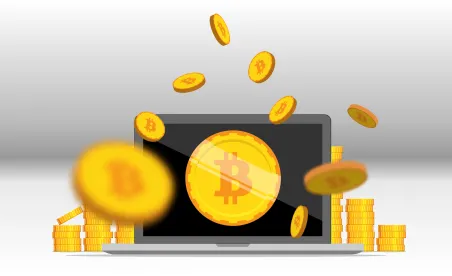In this episode of Bracewell Crypto Bits, host Anne Termine and Sylvia Cherem share highlights from several conferences that took place over the last couple of months and which covered a variety of interesting topics for the cryptocurrency community.
Could you tell us a little bit about the first conference you attended, Empower Bitcoin?
So Empower Bitcoin was in Houston, Texas on March 30 and 31st. It was a very interesting conference because it was focused on crypto mining. A lot of the attendees were crypto miners themselves. And I learned a lot from that conference and about the development of crypto mining facilities and where things stand right now after the China ban from 2021. Now crypto miners are looking for other countries and especially in states with favorable regulatory framework for their activities. So we have seen a lot of movement of crypto miners to Texas.
In terms of other types of mining, did they focus solely on Bitcoin, or did they talk about any other platforms?
They focused solely on Bitcoin. I think the industry acknowledges the different cryptocurrencies, but they are focusing on Bitcoin because it has been proven to be a cryptocurrency that has been around for the longest time right now and also that provides a certain security to the Bitcoin holders. And there is an expectation of the value going up as this is a limited resource and there are only a limited amount of Bitcoins in the market.
So next you attended the Miami NFTs Conference. Can you give me an idea of what was going on that week for that conference?
It was Tech Month in Miami. Miami's now being considered as the hub of blockchain and cryptocurrency. So there were a number of conferences and events going on. I was very happy to attend the Miami NFT Week Conference, which took place from April 1st to April 3rd in Miami. And I was able to learn about the blockchain technology and how this technology is going to change the world as we know it and how it touches upon different industries.
So I think the corporations are now going to be in a place where they have to reassess what is it that they are doing and how they are going to integrate their operations into the digital world. And I was able to see this in a number of different industries. I saw this for the gaming industry, for example, that now all the companies that are producing games, they need to change the economics of the game itself. Because right now, we are at a stage where people pay to play, and that is transitioning to play to earn. So people are now expecting to be rewarded for the activities that they are conducting in this space. And we can see that on a number of different sectors.
Next you attended the reBLOCK Miami Conference. What exactly was that?
The reBLOCK Miami Conference was the first conference about blockchain and real estate. It is very interesting. I think Miami, again, is a relevant city. The real estate market in Miami is right now the hottest market in the United States. We have seen a lot of innovation from the real estate industry in Miami. I think that innovation makes sense for that market because they have two buyers that are banned, or two groups of buyers that are banned from a traditional mortgage, for example.
The first group are the Latin American buyers that want to come to the U.S. and want to acquire properties and also any other foreign groups that want to come to the U.S. and buy real assets. But in that case, there are certain complications. For example, they can't get out traditional mortgage because they don't have a credit history or a Social Security number. So that is the first group that will be benefited from this new structure in the real estate world in Miami. And the second group are the crypto holders that don't want to get rid of their crypto because they firmly believe that they are going to go up in value.
So what we have been seeing are two very important trends. Number one, is crypto mortgages, which open the door to these two groups to acquire property in the U.S. And the second one is tokenization of real estate assets, which has been highlighted as a way to acquire property and to have an otherwise illiquid asset now as a liquid asset because you can sell your token at any point in time. So for example, for new developments, you may have, on a traditional structure you may have to wait until certain stage of the project has been reached. And in this structure, you can simply exchange your token in any of the exchanges that it participates in. So I think that is very interesting.




 />i
/>i

